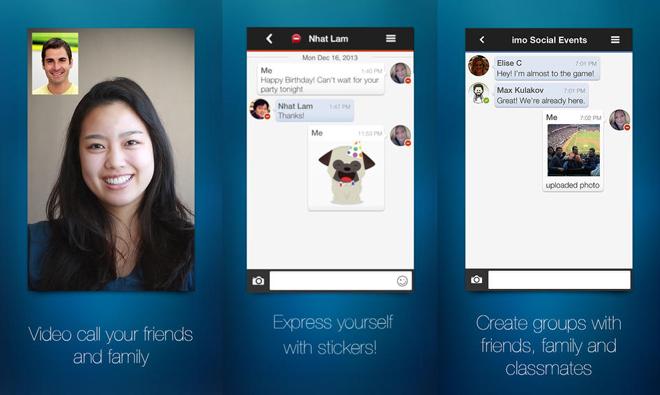In emails sent out to users on Friday, imo announced that it will be discontinuing support for all third-party instant messaging networks to focus on a build-out of its own platform.
The somewhat abrupt change in policy comes as a surprise to some who downloaded the imo app specifically for its ability to aggregate and manage instant messaging accounts across multiple platforms. Starting Mar. 3, imo will begin cutting off support for third-party networks.
We originally launched imo as a browser based messaging service to manage all of your IM accounts. Since then we have also developed apps for Android, iPhone, iPad and Amazon.To provide the best and most reliable service for our users, we need to focus on the areas we feel we can make the biggest impact. We are now going to concentrate on building out our own communications platform to help people easily connect in their everyday lives. Our goal is to create the fastest and most reliable messaging, voice and video call service in the world.
On March 3, 2014, we will start discontinuing support for all third-party instant messaging networks. We know change isn't always easy, but we hope our users will trust that this will make imo an even better service.
According to the app's iTunes description, over ten million people use the platform across Facebook Chat, Google Talk, ICQ, AIM, Yahoo! Messenger, Jabber and Steam. Recently, imo has been concentrating on migrating users to its own service, which includes free mobile VoIP and video calling and a unique Web interface.
Users can download chat history via the o.imo.im Web client. Cached messages from third-party networks will be available until Mar. 7.
The news comes after Facebook purchased messaging app WhatsApp for a staggering $16 billion earlier in February. The service is popular around the world, but most importantly has a huge user base in Europe, where Facebook is not as dominant as it is in the U.S.
 Mikey Campbell
Mikey Campbell








 Malcolm Owen
Malcolm Owen

 Charles Martin
Charles Martin


 Mike Wuerthele
Mike Wuerthele
 Christine McKee
Christine McKee



-m.jpg)






21 Comments
Talk about short notice. Luckily I don't use it.
[quote name="jungmark" url="/t/162231/popular-messaging-app-imo-im-to-end-support-for-third-party-im-networks#post_2479519"]Talk about short notice. Luckily I don't use it.[/quote] Short indeed, but I'm very curious what they mean by "communications platform".
I remember the days before every week brought big news about yet ANOTHER wildly-popular messaging service I've never even heard of. (I agree with Benedict Evans' assertion that having tons of competing social/IM services is not a problem, thanks to the iPhone and its offspring: you can have all these similar services, and send/receive from them all at once, wherever you are, without needing anything to be running all the time. No big push for "one winner," then.)
[quote name="dasanman69" url="/t/162231/popular-messaging-app-imo-im-to-end-support-for-third-party-im-networks-starting-mar-3#post_2479526"][quote name="jungmark" url="/t/162231/popular-messaging-app-imo-im-to-end-support-for-third-party-im-networks#post_2479519"]Talk about short notice. Luckily I don't use it.[/quote] Short indeed, but I'm very curious what they mean by "communications platform".[/quote] They mean their cloud infrastructure for their communication services. Obviously they want their "platform" to be bought.
With Telegram picking up steam and getting better with each release, IMO will have to bring something fresh to the IM game which will set it apart. Otherwise it's DOA... This imo, of course ;)